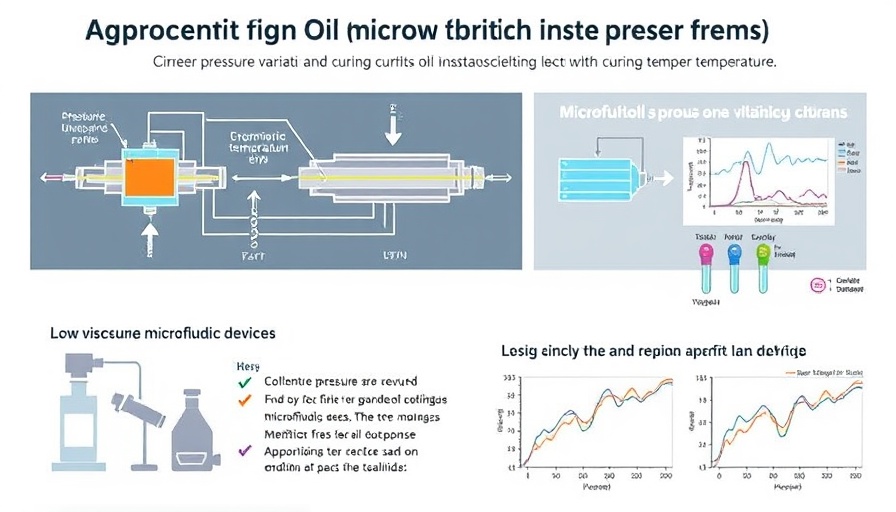
Introducing a Breakthrough in Microfluidics
Researchers at Toyohashi University of Technology, along with top institutions in Argentina and India, have unveiled a new way to enhance microfluidic devices known as PDMS SlipChips. This innovation leverages low-viscosity silicone oil and a refined fabrication method, significantly improving the accuracy and reliability of cell-based experiments.
Why Microfluidics Matter
Microfluidics, a revolutionary field in scientific research, allows scientists to manipulate tiny droplets of liquid, enabling them to conduct complex experiments with just a small amount of sample. This is particularly crucial in the realms of biology and biotechnology, where researchers often work with precious specimens. With SlipChips, experiments can now be performed without bulky equipment, simplifying the process and reducing the operational costs.
Overcoming Challenges in Previous Technologies
Traditionally, microfluidic devices faced issues such as clogging and leakage, which could compromise experimental outcomes. To address these problems, researchers typically used high-viscosity oils for lubrication, but these often caused blockages that could harm living cells. The new approach with low-viscosity oils not only reduces the likelihood of clogging but also contributes to optimal cell health.
The Power of Concentration Gradients
One of the standout features of the PDMS SlipChip is its capacity to create controlled concentration gradients, a method essential for testing cellular responses to varying concentrations of drugs. This advancement opens doors to more sophisticated experiments where scientists can study how cells react to particular stimuli, aiding drug development and testing.
Real-World Applications
The implications of this technology are profound. For instance, in pharmaceutical research, the ability to gauge a drug's efficacy with minimal cell samples could expedite the discovery of new treatments. Whether it's the next breakthrough in cancer therapy or a vaccine development, the enhanced capabilities of microfluidic devices can streamline research processes and foster innovation.
Looking Ahead: The Future of Microfluidics
The integration of low-viscosity oils in microfluidic devices represents a major leap forward. As this technology becomes more widely adopted, we may witness a transformation in how biomedical research is conducted. The efficiency and precision of devices like the PDMS SlipChip pave the way for an exciting future in science—a future where accessing biologic experiments is more effective, accessible, and insightful.
Call to Action
Your interest in new scientific innovations can make a difference. Dive deeper into the burgeoning world of microfluidics and explore how such technologies can impact your understanding of biology and biotechnology. Stay informed and engaged, and consider how advancements like these will shape the future of healthcare and research.
 Add Row
Add Row  Add
Add 




Write A Comment